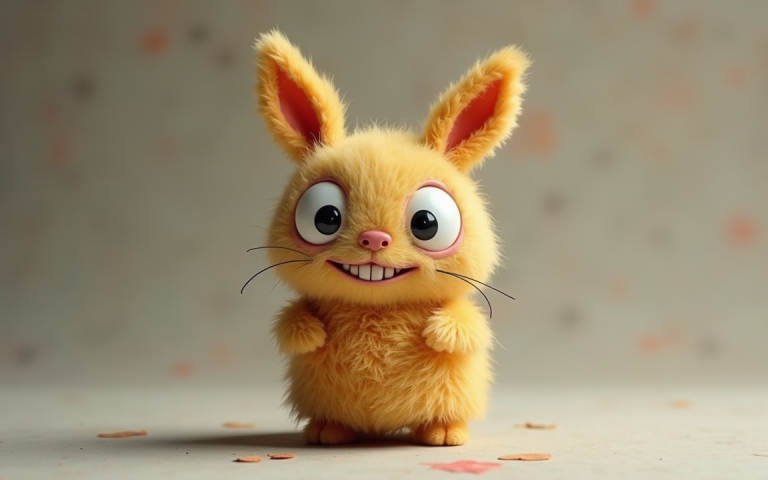Shares of Pop Mart International slumped over 6% on Wednesday, even as the Chinese toymaker forecast a surge in first-half earnings.
The unexpected drop reflects growing investor caution around the sustainability of the company’s rapid growth, despite soaring demand for its collectible toys like Labubu, which has sparked a global craze.
Pop Mart’s revenue in the first quarter of 2025 rose 170% year-over-year, including a nearly 480% surge in overseas sales and a doubling of domestic revenue.
The Beijing-based company, known for selling blind-box toys featuring original characters such as Molly, Crybaby, and the wildly popular Labubu, said it expects profit to jump by at least 350% in the first six months of 2025 compared to the same period last year.
Revenue is also projected to grow by at least 200%, according to a filing with the Hong Kong stock exchange late Tuesday.
Stock falls as investors take profits on high-flying stock
Despite the bullish numbers, the stock fell sharply in Wednesday’s trading.
The negative stock reaction may be a reflection of investors’ conservative outlook on Pop Mart’s sales growth, Jeff Zhang, an equity analyst at Morningstar, told CNBC on Wednesday.
“Despite stellar earnings growth in H1, it may have peaked and will likely see slowdown starting in H2,” Jeff Zhang, an equity analyst at Morningstar, told CNBC on Wednesday.
He noted that investor expectations may have overshot reality and warned that uncertainties around the staying power of Pop Mart’s main characters could weigh on future valuations.
Zhang maintained his view that Pop Mart’s shares are overvalued, adding that the market may not be fully accounting for the risks linked to the fickle nature of consumer trends.
Despite Wednesday’s share price decline, the company’s stock has nearly tripled in value this year, underscoring the market’s continued enthusiasm.
Labubu’s rise fuels massive growth
Pop Mart’s meteoric rise this year has largely been driven by Labubu — an elf-like figurine with pointy ears and a mischievous grin.
The toy has gained cult status among Gen Z and millennial collectors, further boosted by celebrity endorsements on social media platforms.
The toys, which are sold in blind boxes priced between 59 yuan and 5,999 yuan, tap into the thrill of surprise and emotional reward, creating a strong consumer pull.
The human-sized Labubu figure auctioned for $150,000 in Beijing last month underlined the strength of this appeal.
The company attributed its robust forecast to increased global recognition of its intellectual property, an expanded product portfolio, and a growing contribution from overseas markets.
It also credited economies of scale, better cost control, and operational efficiency for the anticipated surge in profitability.
Regulatory clouds fail to dim bullishness by analysts
Pop Mart’s blind box model had come under regulatory scrutiny last month after Chinese state media criticized products that encourage excessive spending among children.
However, the company’s core demographic consists of adult collectors, helping it weather the brief regulatory scare.
Most analysts remain optimistic.
Citi said in a research note that Pop Mart’s strong pipeline and content-driven strategy should help maintain Labubu’s global momentum while introducing new intellectual property as growth engines.
Nomura analysts echoed the sentiment, calling Pop Mart their “preferred pick” in China’s consumer sector.
The firm raised its price target on the stock to 330 Hong Kong dollars from 291, citing “continued acceleration of sales growth.”
What makes Pop Mart’s success especially striking is its performance amid a broader consumer downturn in China.
As households grow cautious about big-ticket spending on housing and cars, affordable indulgences like designer toys have filled the emotional void.
“When optimism about long-term financial prospects fades, people shift from investing in the future, [buying] homes, cars, to seeking momentary emotional rewards,” said Ivy Yang, founder of Wavelet Strategy, New York-based consultancy.
“Each collector [is] projecting their own mood or story onto the toy. This is why Pop Mart differs from Sanrio or Miniso,” Yang added, referring to the Japanese toymaker behind Hello Kitty and a Chinese retailer for consumer goods such as cosmetics, stationery and toys featuring IP design.
The post Pop Mart shares slide despite rosy profit outlook: here’s why appeared first on Invezz

